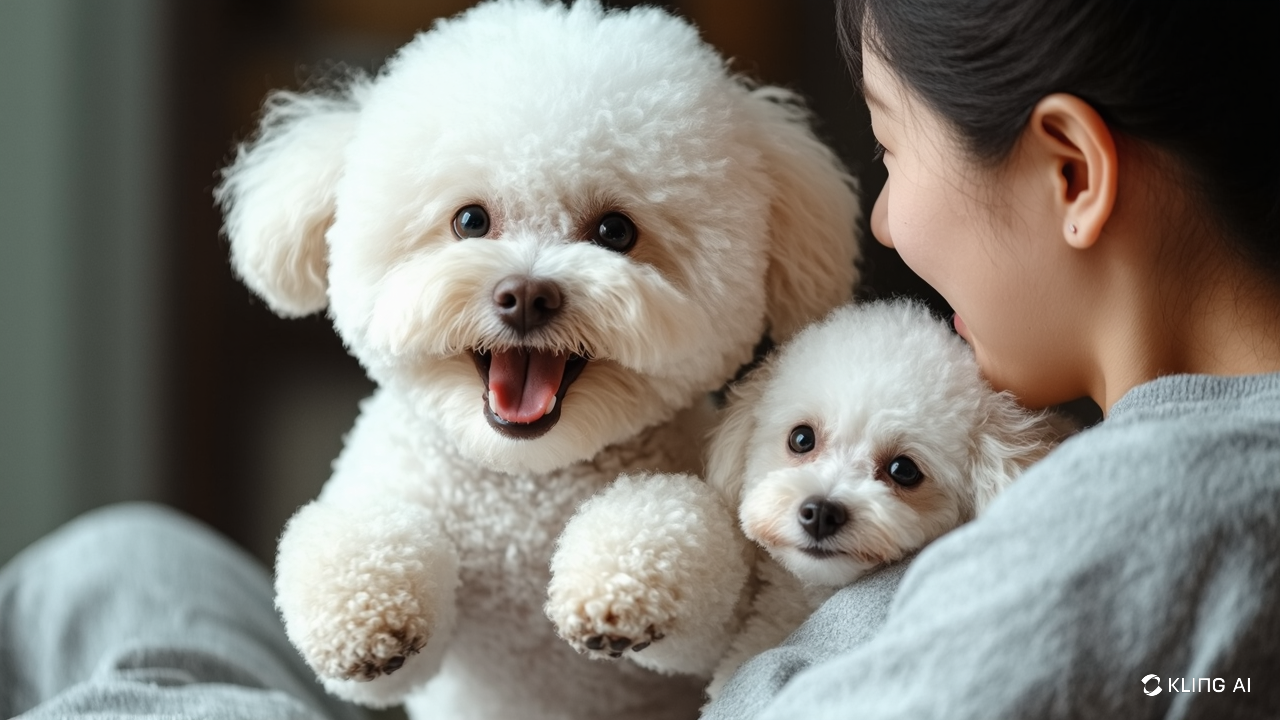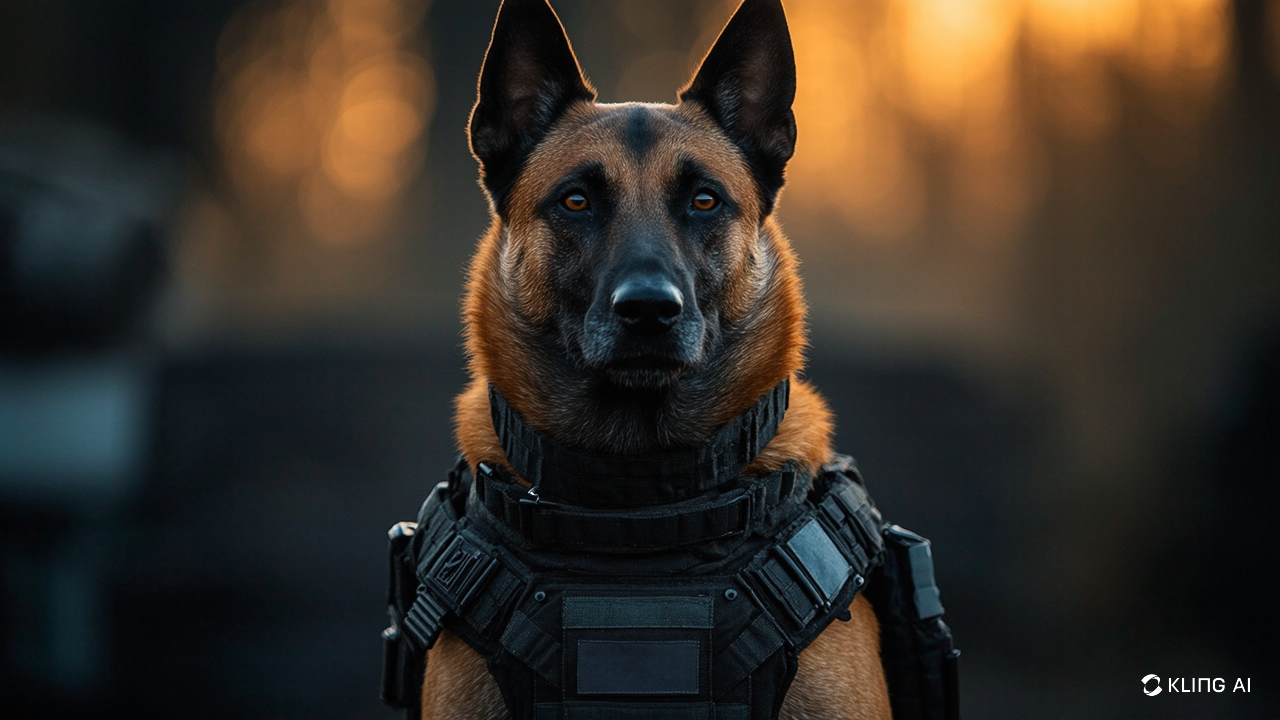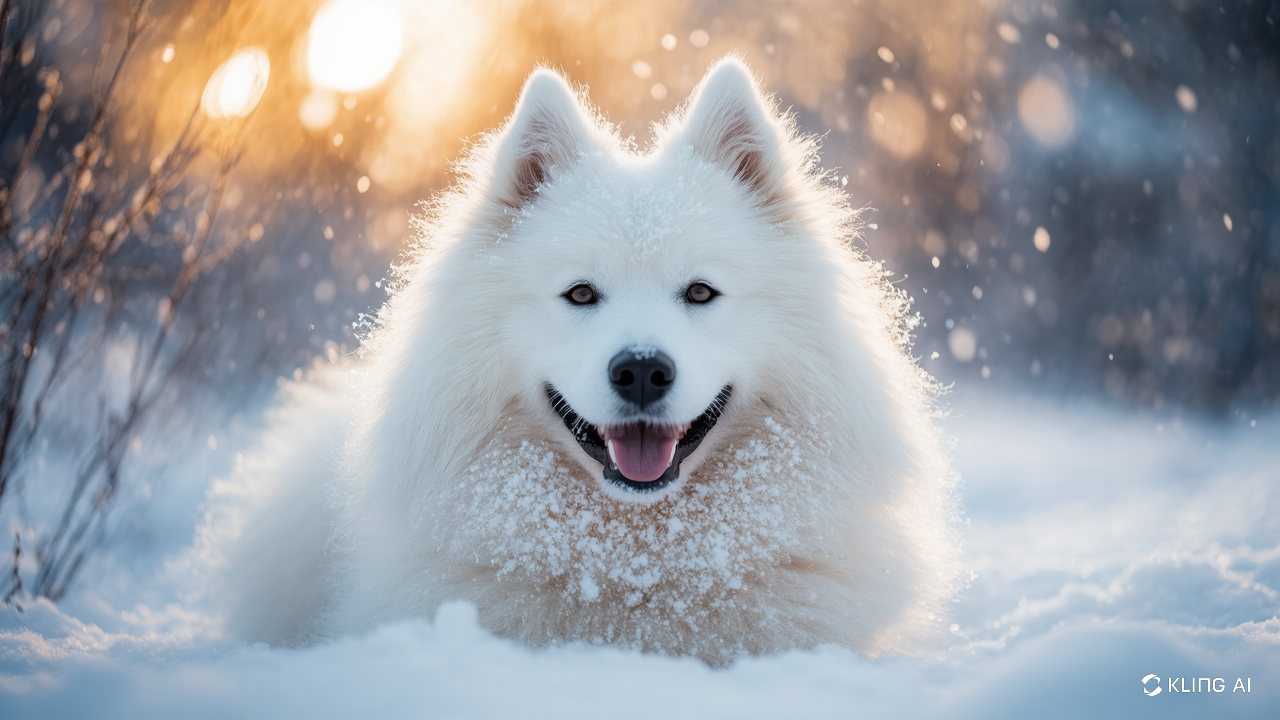
When bringing a new dog into your home, temperament is often just as important as size, activity level, or appearance. Friendliness—that special quality that makes certain dogs naturally warm, approachable, and sociable—can make all the difference in how well your new pet integrates into your life and family.
A dog's friendly nature isn't just a pleasant bonus; it's essential for families with children, households with other pets, and anyone who entertains guests regularly. Friendly dogs typically adapt better to new situations, cause less stress for their owners, and generally create more harmonious households.
What makes some dogs naturally more amiable than others? While much of canine temperament comes down to genetics—centuries of selective breeding for specific behavioral traits—socialization plays an equally crucial role. Even the friendliest breeds need proper exposure to different people, animals, and environments during their crucial developmental periods.
When we talk about a "friendly" dog, we're referring to a constellation of traits: an eagerness to interact with humans (both familiar and unfamiliar), a gentle disposition when playing or being handled, a general tolerance of other animals, and an adaptable nature that handles changes in routine with minimal stress. These qualities don't just make dogs more pleasant companions—they often make them more trainable, responsive, and emotionally connected to their human families.
Truly friendly breeds display an unmistakable enthusiasm when meeting new people. Rather than showing fearfulness, aggression, or indifference, these dogs actively seek interaction, often approaching strangers with wagging tails and relaxed body language. This natural sociability makes them ideal for households that frequently entertain guests or live in bustling neighborhoods where encounters with strangers are common.
The friendliest dog breeds typically demonstrate remarkable adaptability. They handle changes in routine, new environments, and unexpected situations with a calm, even-tempered response. This flexibility makes them easier to integrate into diverse household dynamics and lifestyles, whether you're a single urban dweller or part of a large suburban family.
A friendly dog's playful nature contributes significantly to their appeal. Their natural exuberance and joy in simple activities—chasing balls, playing tug-of-war, or just romping around the yard—can be infectious, bringing laughter and energy into any home. However, it's important to note that energy levels vary significantly even among friendly breeds, so matching a dog's activity requirements to your lifestyle remains important.
Perhaps most importantly for families, the friendliest breeds exhibit exceptional gentleness and patience, particularly with children. They tolerate the sometimes clumsy handling of young kids, remain calm during high-energy play, and seem to intuitively understand the need for extra care around smaller humans. This natural gentleness makes them invaluable family members in households with children of all ages.
It's no coincidence that Labrador Retrievers have maintained their position as America's most popular dog breed for over three decades. Labs embody nearly every quality we associate with an ideal family companion, starting with their legendary friendliness.
Labs typically greet everyone—family members, neighbors, or complete strangers—with the same enthusiastic welcome, complete with wagging tails and sometimes their signature "Labrador lean" where they gently press against your legs. This universally friendly approach to humans comes from their history as working retrievers, where cooperation with different handlers was essential.
Their gentle mouth—developed for retrieving game without damage—translates to exceptional gentleness when playing with children. A well-raised Lab seems to instinctively understand the need for restraint around smaller humans, making them one of the most trusted breeds for families with young children.
However, Labs require substantial daily exercise to maintain their even-tempered disposition. A Lab without enough physical and mental stimulation can become destructive or develop nuisance behaviors. Daily walks, swimming opportunities when possible, and interactive play sessions keep these intelligent dogs balanced and happy. Their need for engagement extends to mental stimulation as well—training sessions, puzzle toys, and varying their routines prevents boredom and strengthens your bond.
If there's a breed that rivals the Labrador in sheer friendliness, it's undoubtedly the Golden Retriever. These dogs seem to approach life with a perpetual smile and an unwavering belief that everyone they meet is a friend they haven't made yet.
Goldens possess an extraordinary sensitivity to human emotions. This empathetic quality makes them exceptional therapy and service dogs, as they intuitively respond to signs of distress or needs in their human companions. Their natural desire to please makes them highly trainable, and they excel in roles ranging from assistance dogs to search and rescue work.
The Golden's friendly nature extends to other animals as well. They typically integrate smoothly into multi-pet households and display remarkable patience with other dogs, cats, and even smaller pets when properly introduced.
Prospective owners should be aware that Goldens require significant grooming attention. Their beautiful double coat sheds considerably, especially during seasonal changes. Regular brushing (at least weekly, daily during heavy shedding periods), occasional baths, and attention to ears and paws are necessary maintenance tasks. This grooming time, however, often becomes a bonding activity that most Goldens thoroughly enjoy due to their love of human attention.
Not all friendly dogs come in large packages. The Cavalier King Charles Spaniel proves that sometimes the biggest hearts come in smaller bodies. These elegant little companions rarely exceed 18 pounds but offer affection and sociability that rivals much larger breeds.
Cavaliers combine the gentle, affectionate nature of a toy breed with the more robust, playful qualities of a sporting dog. They genuinely love human companionship and will happily adapt to your lifestyle—whether that means curling up on the couch for a movie marathon or joining you for a moderate hike.
Their adaptability makes them ideal for various living situations, from apartments to larger homes. While they enjoy outdoor activities, they don't require the extensive exercise regimen of larger sporting breeds. A couple of daily walks and play sessions typically satisfy their physical needs, making them suitable for less active owners or those with limited outdoor space.
Cavaliers form exceptionally strong bonds with their owners and can sometimes develop separation anxiety if left alone for extended periods. They thrive in households where someone is home most of the day or where they can accompany their owners on outings and errands.
With their expressive eyes and perpetually wagging tails, Beagles bring an infectious cheerfulness to any household. These compact hounds were bred for pack hunting, resulting in a naturally sociable disposition that extends to both humans and other animals.
Beagles approach life with curiosity and enthusiasm, making every walk an adventure as they follow their remarkable noses. Their friendly nature makes them poor guard dogs but excellent companions—they're more likely to greet an intruder with a wagging tail than any show of aggression.
Their moderate size (typically under 30 pounds) combines with high energy levels to create a dog that fits comfortably in many homes but still has the robustness to keep up with active families. They particularly excel in households with children, as they're usually patient with handling and always ready for play.
The Beagle's hunting heritage does come with certain challenges. Their powerful scenting drive can lead them to follow their nose regardless of commands, making reliable recall sometimes difficult to achieve. Secure fencing is essential, as is consistent training that channels their intelligence positively. Using food rewards often works well with this food-motivated breed, though training sessions should be kept engaging to maintain their sometimes limited attention span.
Few breeds balance protection and friendliness as effectively as the Boxer. These athletic, medium-sized dogs are known for their exuberant personality and almost clownish antics that keep families entertained for years.
Boxers typically display remarkable patience and gentleness with family members, especially children, while maintaining a natural alertness that makes them attentive watchdogs. They seem to instinctively understand the difference between normal household activities and genuine threats, rarely showing aggression without cause.
Their playful nature remains well into adulthood, with many Boxers retaining puppy-like enthusiasm for games and activities throughout their lives. This youthful spirit makes them excellent playmates for older children who can match their energy levels.
Early socialization and consistent, positive training are essential for Boxers. Their combination of intelligence, physical strength, and exuberance requires channeling into appropriate behaviors. When properly trained, they become remarkably responsive and well-mannered companions who balance playfulness with impressive self-control.
The Bichon Frise seems designed specifically to bring joy. These fluffy white dogs, with their button eyes and constantly wagging tails, approach life with an almost perpetual cheerfulness that's impossible to resist.
Bichons thrive on human interaction and typically greet everyone—family, friends, and strangers alike—with enthusiastic affection. Their natural sociability makes them excellent companions for people of all ages, from children to seniors, and they adapt well to various living situations, including apartments and smaller homes.
One of the Bichon's most appealing characteristics for many owners is their hypoallergenic coat. While no dog is completely non-allergenic, Bichons produce fewer allergens than many breeds and shed minimally, making them suitable for some individuals with allergies. This coat benefit comes with maintenance requirements, however. Regular grooming sessions, including brushing several times weekly and professional grooming every 4-6 weeks, are necessary to prevent matting and maintain their characteristic fluffy appearance.
Despite their small size, Bichons maintain a relatively robust energy level and enjoy daily walks and play sessions. They're intelligent and responsive to training, particularly when it involves positive reinforcement techniques that appeal to their eager-to-please nature.
Poodles, available in three size varieties (Standard, Miniature, and Toy), combine remarkable intelligence with a friendly, affectionate temperament that makes them versatile companions for nearly any household.
Contrary to their sometimes prissy stereotype, Poodles were originally developed as working retrievers and retain an active, athletic nature beneath their sophisticated appearance. They form strong bonds with family members and typically display a warm, though sometimes slightly reserved, friendliness toward strangers that quickly blossoms into full acceptance.
Their exceptional intelligence places them among the most trainable of all dog breeds. Poodles learn commands quickly, often anticipate their owners' desires, and excel in various canine activities from obedience competitions to agility. This intelligence needs direction, however, as an understimulated Poodle can become bored and potentially develop nuisance behaviors.
Like the Bichon, Poodles have a hypoallergenic coat that benefits allergy sufferers but requires significant maintenance. Their curly, continuously growing hair needs regular brushing to prevent mats and professional grooming every 4-8 weeks. Many owners opt for the practical "puppy clip" for everyday maintenance rather than the elaborate show cuts often associated with the breed.
With their flowing mahogany coats and graceful movement, Irish Setters bring both beauty and boundless enthusiasm to their lucky families. These stunning gundogs combine their sporting heritage with an exceptionally friendly temperament.
Irish Setters typically display an exuberant joy when interacting with people. They greet family members with unbridled excitement and welcome visitors with wagging tails and sometimes whole-body wiggles of delight. This outgoing nature makes them poor guard dogs but excellent companions for social households.
Their athletic build and high energy levels require substantial daily exercise. Irish Setters thrive with active families who enjoy outdoor pursuits and can provide at least an hour of vigorous activity daily. Without adequate physical and mental stimulation, these intelligent dogs may become destructive or develop problem behaviors born of frustration and boredom.
Early training is essential to channel their enthusiasm appropriately. Irish Setters respond well to positive, consistent training methods that engage their intelligence while respecting their somewhat sensitive nature. Harsh corrections can damage their naturally eager-to-please attitude and should be avoided.
Few breeds embody the combination of imposing size and gentle temperament as perfectly as the Newfoundland. Often weighing well over 100 pounds, these massive dogs possess an equally massive capacity for affection and patience.
Newfoundlands earned their nickname as "nanny dogs" through their extraordinary gentleness with children. They seem to innately understand the need for care around smaller, more fragile beings. Their natural protectiveness is rarely expressed through aggression but rather through watchful attention and positioning themselves between potential threats and their family members.
Their calm, patient nature makes them surprisingly adaptable to various living situations, provided they have adequate space. While they enjoy moderate exercise, particularly swimming (which their webbed feet and water-resistant coat make them naturally equipped for), they don't require the intense activity of more energetic large breeds.
Prospective owners should consider the practical aspects of living with such a large dog. Significant drooling, substantial shedding from their thick double coat, and the space requirements of a giant breed are important factors. Regular grooming sessions, including thorough brushing several times weekly, are essential to manage shedding and prevent matting, particularly in the dense undercoat.
Immortalized by the character Lassie, Collies have long held a special place in our collective imagination as the epitome of canine devotion and intelligence. Their real-world temperament largely supports this idealized image, combining remarkable sensitivity with natural friendliness.
Collies typically form intensely loyal bonds with their families while maintaining a gentle friendliness toward strangers. Their herding heritage gives them a natural protectiveness, particularly toward children, whom they sometimes attempt to "herd" with gentle nudging rather than any aggression.
Their intelligence demands mental as well as physical exercise. Collies excel at various canine activities, from obedience and agility to more complex tasks that challenge their problem-solving abilities. Without adequate mental stimulation, they may become bored and potentially develop nuisance behaviors like excessive barking.
The classic "rough" Collie with its abundant coat requires significant grooming attention, including thorough brushing several times weekly to prevent matting and manage shedding. The "smooth" variety, with its shorter coat, requires less intensive grooming but still benefits from regular brushing to control shedding.
With their soulful eyes and ever-wagging tails, Cocker Spaniels have charmed their way into countless homes as affectionate, gentle companions. These medium-sized sporting dogs balance energy with remarkable sweetness of temperament.
Cockers typically display an eager-to-please attitude that makes them responsive to training and naturally attuned to their owners' moods. They form strong bonds with family members while usually extending their friendly nature to visitors and strangers, making them poor guard dogs but excellent social companions.
Their moderate size—typically under 30 pounds—combined with their adaptable energy levels makes them suitable for various living situations. While they enjoy and benefit from regular exercise, including daily walks and play sessions, they don't typically require the intensive activity of larger sporting breeds.
Proper care for a Cocker Spaniel includes significant attention to their beautiful coat and ears. Their silky, continuously growing coat requires regular brushing—ideally several times weekly—and professional grooming every 4-8 weeks to prevent matting and maintain its condition. Their pendulous ears need regular cleaning and checking to prevent infections, a common concern in the breed.
While selecting a naturally sociable breed provides an excellent foundation, raising a truly friendly dog requires thoughtful attention to socialization, training, and meeting their physical and mental needs.
The critical socialization period for puppies occurs between approximately 3 and 14 weeks of age. During this window, puppies are particularly receptive to new experiences, and positive exposures during this time significantly influence their adult temperament.
Effective socialization involves gradually introducing your puppy to a wide variety of people (of different ages, appearances, and behaviors), other animals, environments, sounds, and situations—all while ensuring these experiences remain positive. Puppy kindergarten classes offer structured socialization opportunities under professional guidance and are highly recommended.
Even naturally friendly breeds can develop fearfulness or reactivity without proper socialization. Conversely, breeds not known for exceptional friendliness can develop more sociable temperaments when thoroughly and positively socialized during this crucial period.
Training methods significantly impact a dog's friendliness and overall temperament. Positive reinforcement techniques—rewarding desired behaviors rather than punishing unwanted ones—help build a dog's confidence and strengthen the human-canine bond.
Remember that training is an ongoing process rather than a one-time achievement. Regular, short training sessions throughout a dog's life maintain good behaviors while strengthening your connection.
Consistent, clear communication through training helps dogs understand expectations, reducing stress and potential behavior problems. Basic obedience commands provide essential structure while advanced training offers valuable mental stimulation for intelligent breeds.
Even the friendliest dog can develop problematic behaviors when their fundamental needs go unmet. Regular exercise—tailored to the individual dog's age, breed, and health status—helps prevent frustration and excess energy that might otherwise manifest as destructiveness or hyperactivity.
Mental stimulation is equally important, particularly for intelligent breeds. Puzzle toys, training sessions, scent games, and varied walking routes provide cognitive challenges that keep dogs engaged and satisfied. Regular play sessions that include appropriate social interaction further support a dog's friendly temperament.
Choosing a friendly dog breed represents an investment in years of companionship, joy, and relatively stress-free integration into your household and lifestyle. The breeds highlighted in this guide consistently rank among the most sociable and affectionate companions, though individual temperament can vary even within breeds.
When selecting your perfect canine friend, consider not just a breed's friendly reputation but also how well their other characteristics—size, exercise needs, grooming requirements, and health considerations—align with your living situation and daily routine. The most harmonious matches occur when a dog's needs and natural tendencies complement rather than challenge their owner's lifestyle.
Remember that while genetics provide a foundation for temperament, environment plays an equally crucial role. Even the friendliest breeds require proper socialization, positive training methods, and ongoing attention to their physical and mental well-being to fully develop their natural sociability.
Ultimately, a friendly dog brings more than just an absence of behavioral problems—they bring a special quality of joyful engagement with life and a remarkable capacity for connection. This unique bond between humans and our canine companions represents one of the most rewarding relationships available to us, enriching our lives in countless ways through their uncomplicated affection and faithful companionship.

Looking for the friendliest dog breeds? Discover the top affectionate, social, and family-friendly dogs, from Labrador Retrievers to Cavaliers. Learn about their temperament, care needs, and training tips to find the perfect loving companion for your home!
Read more...

Looking for the best protection dog breed? Discover top guard dogs like German Shepherds, Rottweilers, and Dobermans. Learn about their protective instincts, training needs, and key traits to find the perfect security companion for your home and family.
Read more...

Discover the most expensive dog breeds, from the Tibetan Mastiff to the Samoyed. Learn what makes these luxury dogs so costly, including rarity, pedigree, and care needs. Find out if owning an elite breed is worth the investment!
Read more...
Cape Town, Western Cape, South Africa
digigrow.to@gmail.com
+27 000 000 0000
All rights reserved 2024 - 2025.
Designed by DigiGrow